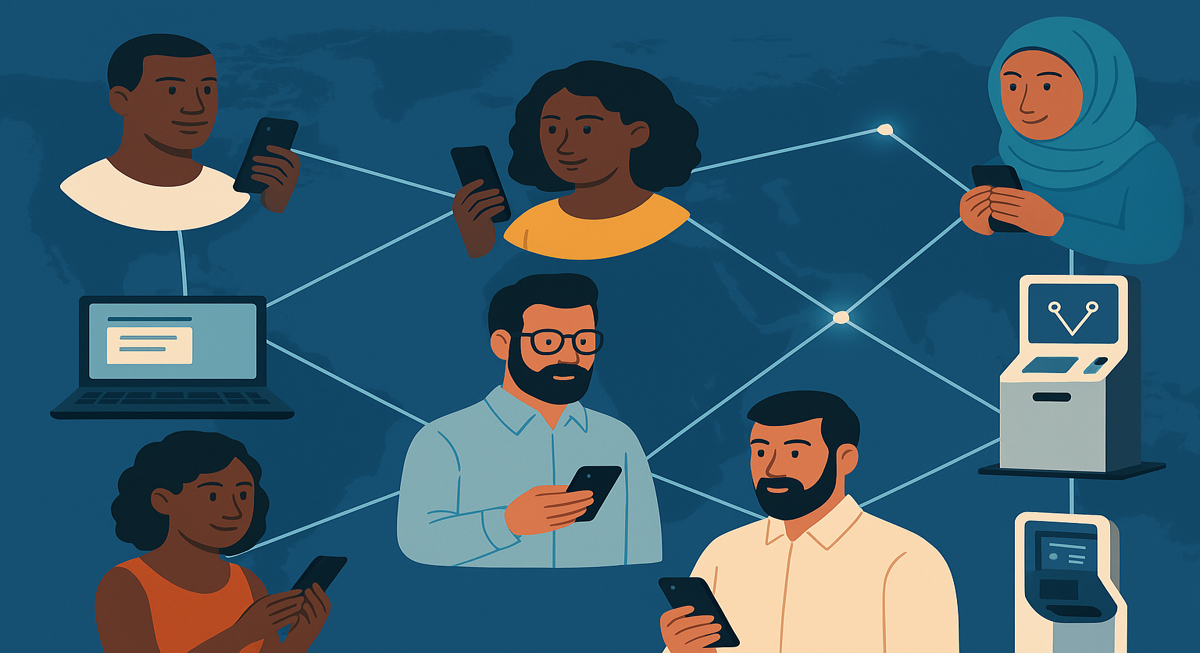Author: Oluwatosin Idowu
Follow the money is the saying. With decentralized clinical trials (DCTs) expected to generate revenue of $24.97 billion by 2032, a threefold increase from $8.19 billion in 2024, it’s clear that there is a compelling basis for this shift in how clinical research is conducted (1).
But what exactly is fueling this transition?
Decentralization applies to more than just the medical research field. It is a trending concept in the modern world because of its tech-driven potential to eliminate many third-party inefficiencies.
For example, using blockchain technology, the emerging decentralized finance (DeFi) space aims to cut banks and bureaucracy from financial transactions. The aim is to give users more control and to make transactions less costly, more accessible, secure, and transparent.
This is similar in the medical world. Traditional site-based trials have many inefficiencies and are no longer the only viable model. Decentralized approaches could improve efficiency, reduce costs, and expand access to a broader patient population.
Advances in digital health technologies (DHTs) are increasingly emphasizing patient-centric research. In Nigeria, where access to healthcare and research participation remains uneven, DCTs can transform how we include this population in clinical research.
Research organizations that adopt these innovations are well-positioned to lead this transformation, particularly those that integrate proprietary digital health devices and data management platforms. By leveraging these tools, we can enhance participant engagement, streamline data collection, and ensure compliance.
Understanding Decentralized Clinical Trials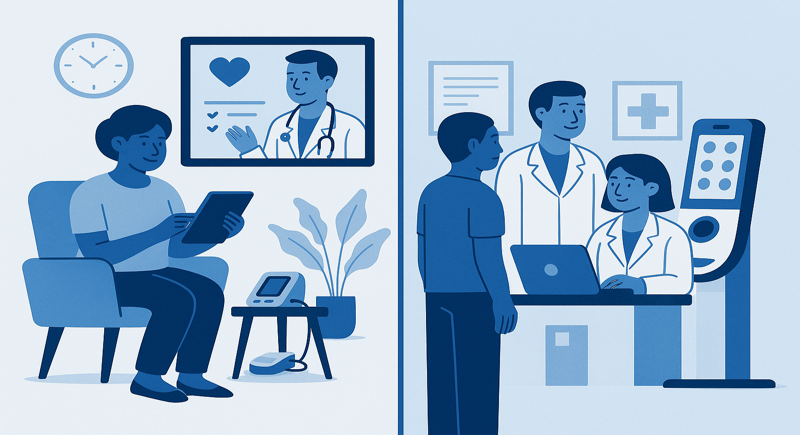
A decentralized clinical trial (DCT) shifts certain or all trial activities away from traditional research sites to remote locations. These could be the patients’ homes, local healthcare facilities, or digital platforms. There are two primary models:
- Fully Remote DCTs: All trial activities occur outside a central site using telemedicine, digital monitoring devices, eConsent, and electronic patient-reported outcomes (ePROs).
- Hybrid DCTs: Some trial elements are conducted remotely while critical procedures (complex drug administration, imaging, lab tests) are performed at clinical sites.
For Nigeria, a hybrid approach is more ideal because some level of oversight has proven crucial in ensuring data accuracy (2). This balances remote participation with site-based interventions where necessary.
Observational studies and data from Phase 2 and Phase 3 clinical trials provide compelling evidence of the feasibility and advantages of decentralized clinical trial (DCT) models. They demonstrate that remote trial designs can enhance patient recruitment, improve retention rates, and streamline data collection, all while maintaining the integrity and reliability of clinical research outcomes (3).
The success of decentralized elements in later-stage trials reinforces their potential to effectively integrate into earlier phases of drug development, paving the way for broader adoption across the clinical research spectrum.
Why Decentralized Clinical Trials Matter in Nigeria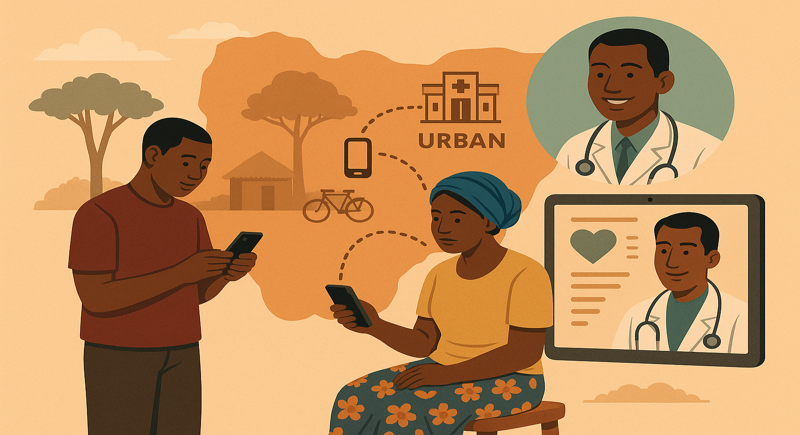
It’s all about improving patient access, increasing diversity in the trials, and enhancing patient retention through convenience.
We know that clinical research lacks sufficient representation from African populations. Contributing to this is the fact that many Nigerians live far from major healthcare institutions, especially those living in rural areas.
This poor proximity reduces the likelihood that a person will seek formal medical care even when sick, much less participate in a clinical trial (4). Decentralized clinical trials (DCTs) allow broader participation by reducing these geographic and logistical barriers.
Traditional trials require frequent site visits, which have the potential to disrupt participants’ daily lives. With DCTs, patients can engage in trials from home and nearby locations where they have access to digital devices. This, in turn, increases adherence and retention rates.
The need for decentralized clinical trials was more pronounced during the COVID-19 pandemic. This profoundly reshaped the landscape of clinical trials globally, and Nigeria was no exception.
The pandemic introduced unprecedented challenges, including restricted mobility, overwhelmed healthcare systems, and the need for social distancing—all of which disrupted traditional clinical trial operations. In response, the adoption of Decentralized Clinical Trials (DCTs) accelerated as a resilient alternative to continue vital research.
In Nigeria, the World Health Organization’s Solidarity Plus Trial exemplified this response. Despite facing obstacles of inadequate infrastructure, limited investigator expertise, and bureaucratic delays in regulatory approvals, the trial leveraged decentralized methodologies to maintain momentum. This approach facilitated continuous patient enrollment through electronic records.
Moreover, it led to infrastructure improvements across multiple sites to bolster case detection and data collection capabilities, which also shows how digitization in healthcare drives innovative growth (5).
Regulatory and Ethical Considerations for DCTs in Nigeria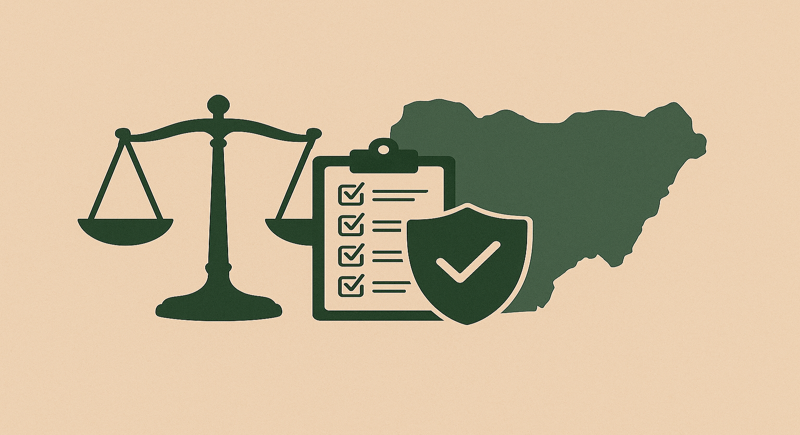
For decentralized trials (DCTs) to succeed, they must align with global and local ethical guidelines and regulatory standards. However, several challenges exist because it is a relatively novel area. Key considerations include:
Patient Safety & Data Privacy: Ensuring compliance with Nigerian clinical trial regulations and global security standards.
DHT Accessibility & Data Quality: Ensuring that all trial participants can use the required digital health tools and understand how to provide accurate data.
Informed Consent & Oversight: Providing clear participant guidance and maintaining investigator responsibility in remote settings.
Challenges & Potential Solutions for Implementing DCTs in Nigeria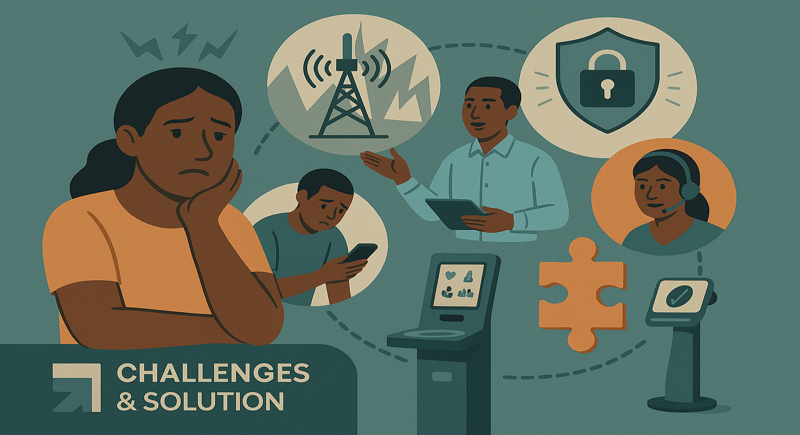
Limited internet access in Nigeria makes remote participation difficult for some patients, posing a major challenge to decentralized clinical trials. In such cases, the cost-effectiveness of providing relevant digital devices and internet access must be justified against the cost-effectiveness of traditional site-based participation. A hybrid model that combines digital tools with mobile health devices at local healthcare or community centres can provide a practical solution for broader inclusion.
Another concern is data security because remote trials require secure transmission of sensitive health information. Implementing end-to-end encryption and cloud-based storage solutions can help protect participant data and maintain regulatory compliance.
Additionally, low digital literacy among certain population groups poses a barrier to the widespread adoption of DCTs. Providing training programs for both participants and research staff can help bridge this gap and help individuals effectively engage with digital health platforms.
Finally, regulatory adaptation remains a challenge, as Nigerian authorities are still developing frameworks for decentralized trials. We must collaborate with NAFDAC and other relevant ethics/regulatory committees to establish clear guidelines mirroring the FDA’s, but demographically tailored to Nigeria, to scale up DCTs in the country (6).
How Metaphor’s Digital Health Kiosk Supports DCTs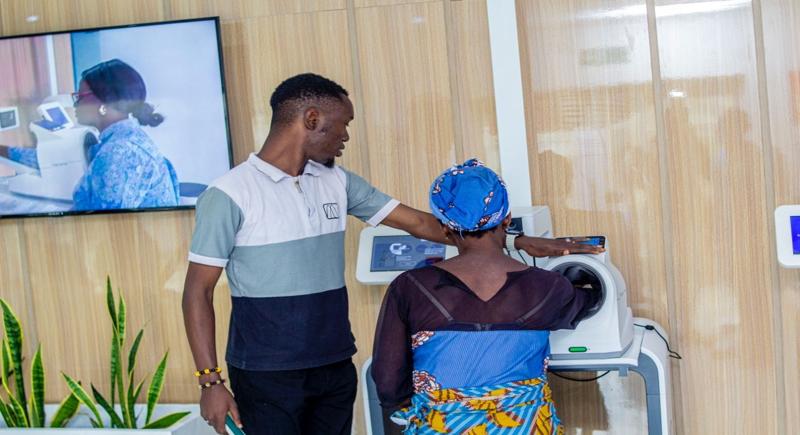
As a CRO in Nigeria, Metaphor Laboratory is at the forefront of integrating digital health solutions to enhance decentralized trials. Our low-footprint digital health kiosks provide user-friendly, mobile app-enabled solutions for collecting and monitoring health data.
End-to-end encryption, secure cloud-based storage, and strict data access protocols ensure compliance with local and international standards. Our device also integrates with electronic medical records and AI algorithms for smarter categorization and flagging.
Decentralized clinical trials (DCTs) represent the future of clinical research because they are efficient, cheaper, and more broadly accessible. This is in line with Metaphor’s mission to overcome clinical trial barriers in Africa with innovation and foster global research collaboration.
The increasing adoption of DCTs worldwide presents an opportunity for Nigeria to become a hub for decentralized research in Africa.
